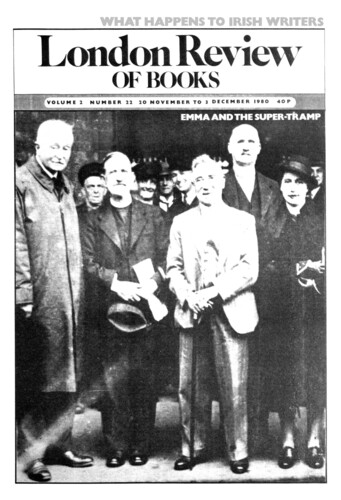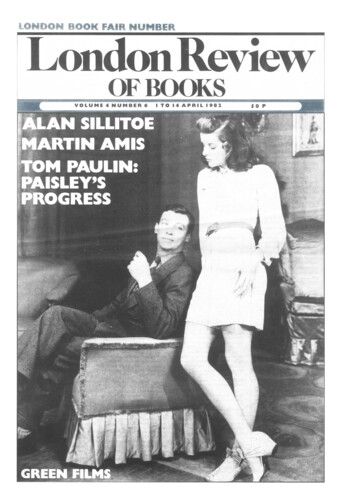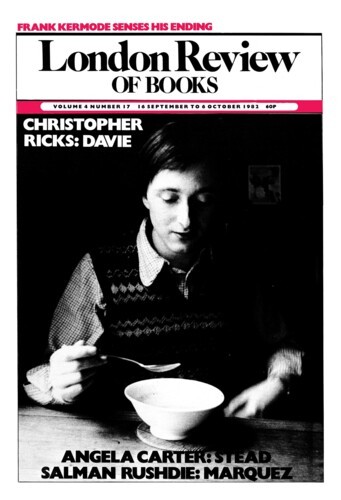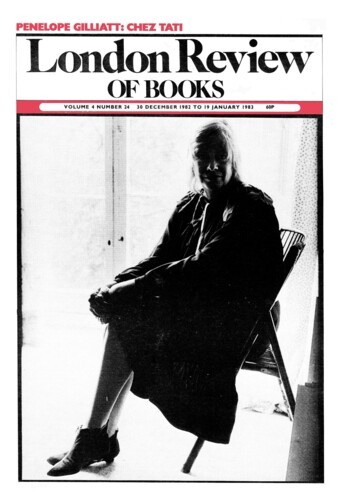Poem: ‘The Renunciation’
Blake Morrison, 20 November 1980
Our lives were wasted but we never knew. There was such work to be done: the watch-chains And factories, the papers to sign In the study. Surrounded by brass How could we see what we amounted to – A glint of eyes as headlights swept away?
In a cot on the lawn lies my nephew, Whose name I can’t remember – the strands Of family thinner each year, though we Are here again,...




